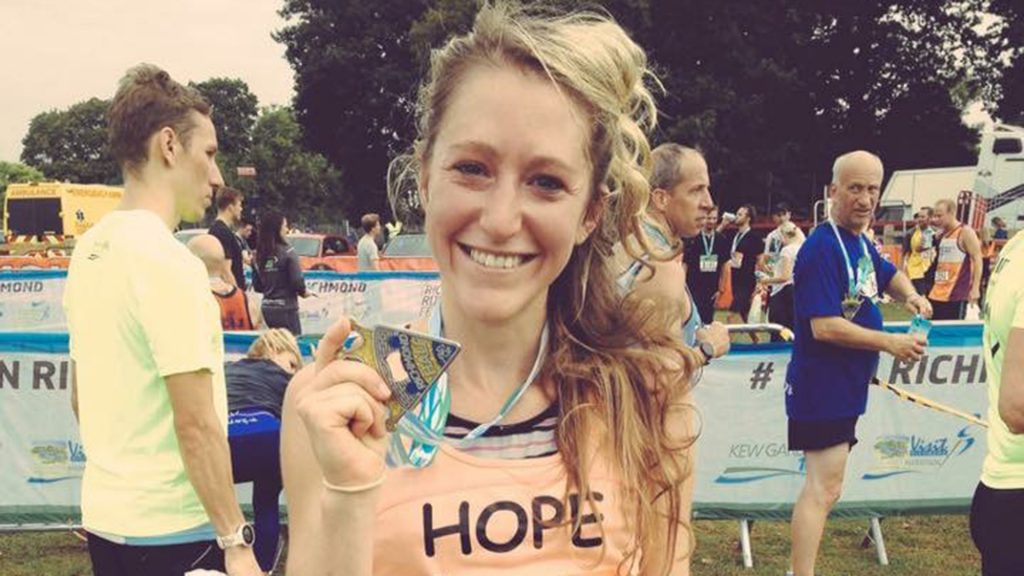It’s a cold, wet, windy January morning at 05:00 and I’m half way through a 20 mile run. Despite the weather, I’d got it into my head that I wanted to do this today. I knew if I didn’t, the guilt would set in. The feelings of hopelessness and failure. That voice in my head would shout at me. Crushing me all over. None of this was good for either my physical or mental health.
Mental Health & Anorexia
That was me 11 years ago… 1st January and my resolution as per usual had been to lose weight and exercise more. This has been the case for the last four years. And I didn’t really see any other way. The Anorexia ruled my life and had complete an utter control (although at the time I didn’t think this). She dictated my every mood, but the more I did for her, the better I felt about life. She held me in the evenings when I was struggling with emotions, she made me feel valued and worth something.
Little did I know that four years later I would be stood, aged 17 with yellowy skin, hair falling out and my body failing in the entrance to a mental health hospital. Little did I know that I was going to spend the next year of my life right here facing my biggest battle. The battle to beat my Anorexia.
The problem with recovering from an eating disorder is the constant bombardment of what diets we should follow, how much exercise we should all be doing and the constant brain washing that the only way to be happy and successful is to be “stick thin”.
What I’ve learnt in the decade since my discharge from hospital is what I need to do to stay well and manage my recovery. But the tricky part is to not feel triggered by all the messages around dieting. When you have had an eating disorder, it can be hard to listen to your body, you very rarely get hungry and sometimes it can be tricky when you are listening to people discussing diets.
The Importance of Balance
Healthy eating and exercise are often portrayed in the extreme. The media pushes hardcore diets, clean eating, carb cutting and the latest 1,000 calorie workouts. I have been at that extreme level and see first-hand the negative consequences of this on my mental and physical health. Following extreme diets fuelled my anorexia and also had a negative impact on how I thought and felt about myself.
After I was discharged from hospital, I came to realise the importance of balance. If used in the right way, we know that exercise and healthy eating can have a positive impact on our physical and mental health.
But healthy eating doesn’t involve cutting out certain food groups, instead it is about finding the right balance. Learning to listen to your body and not beating yourself up for eating unhealthy foods occasionally.
What the fitness industry should be doing to increase understanding around the correlation between mental health and physical health is simple and achievable. It is about not focusing on calories, but focusing on an entire lifestyle. We don’t want to live in a society where people are too scared to eat calories or certain foods but we want to be encouraging this balance.
Healthy Exercise, Healthy Mind
For me, exercise had always been something I was obsessed with, I felt the need to do it all the time, wanting more and more. If I didn’t do enough, then that anorexic voice in my head would start to crush me. I still have to manage my exercise now, but it has helped change my understanding around food. I now see food as fuel and not something scary that I can’t have. I also now have the want to be “strong and not skinny”. A mind-set that has helped me become less obsessed with cardio workouts.

A great example of this was when I trained for two marathons. For the first I over-trained, and barely ate. I finished in just under four hours and felt exhausted (physically and mentally). Four years later I did another, but this time I ate and exercised healthily and instead of crashing, I managed a 3 hour 26 minute marathon.
We all have a role to play in this when it comes to our own conversations on a day-to-day-basis. Whether you are out and about or in office, be more mindful of speaking about these extremes.